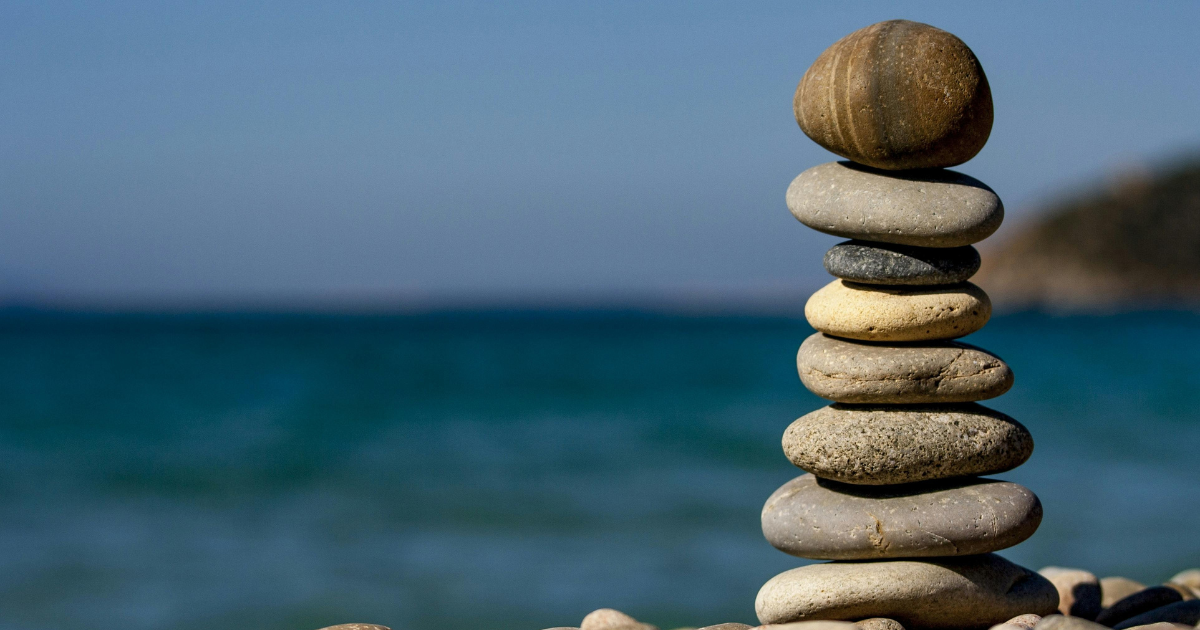Depression is one of the most rampant mental conditions that have captured millions of people around the world. The condition not only refers to having “the blues” or being simply “down” but also plays a role in other aspects of life, which include emotional, somatic, and social activities.
This blog post will explore comprehensively various types of depression, symptoms, and their causes, and how a patient can undertake self-care in managing the affliction. Whether you are suffering from depression or trying to help someone else, understanding this condition is the first step toward healing.
What Is Depression?
Depression is not a mood swing. It is an emotionally complex medical disorder involving thinking, behavior, and the emotions and physiology of a person. It brings along a long-lasting low and hopeless view about the potential of the individual to enjoy certain activities that they once enjoyed before falling into the trap of depression. The effects are strongly distressful to life’s interpersonal and performance aspects.
Everyone might have had some occasions of sadness or gloom. Still, the most severe depression, clinically termed Clinical Depressive Disorder, is a long-term illness that has a significant effect on mood, thought, and behavior. Such clinical states of depression interfere with the daily functioning and overall well-being of the person. Such a disorder is not to be referred to as showing any type of weakness: it’s a serious form of mental condition that one should have proper care for and receive proper treatment.
In general, symptoms of depression vary from one person to another, but they tend to cover a combination of emotional, physical, and cognitive symptoms. Knowing the symptoms of depression is highly important to diagnose depression in oneself or others.
Types of Depression
There are several types of depression. The symptomatology and treatment needed varies with the nature of the depression. The line of distinction between various kinds of depression is vital for the choice of the best treatment of all. Let us classify the most prevalent forms of depression:
Mental Health Center of San Diego
Clinical Depression (Major Depressive Disorder)
Clinical Depression, or Major Depressive Disorder, is the most common and most serious kind of depression. It is an emotional pain and hopelessness that lasts more than a month and is accompanied by an apparent loss of interest or pleasure in everyday activities. Clinical depression leads to a marked impairment in one’s ability to function at work, in social or other major activities, or any other area of functioning, even in the household. Sometimes, it comes with physical symptoms, such as a change in appetite, sleep, or low energy level.
Postpartum Depression
This depression condition occurs in new mothers immediately after childbirth and is termed postpartum depression. The “baby blues” are mild and transients, but there exists a part of postpartum depression that is much more intense and lasts for a long time. The symptoms are those of persistent sadness, anxiety, or a failure to bond with the baby. This type of depression requires treatment and support both by the mother and the infant.
Manic Depression (Bipolar Disorder)
Previously known as manic depression, this is a condition that encompasses mood swings, mania, and depression. Patients suffering from bipolar disorders will experience extreme highs and low levels that interfere with the functioning of life in these patients. Maniacs require professional interventions. Manic depression involves medication and counseling therapy when put together appropriately with their mood.
Seasonal Affective Disorder (SAD)
Seasonal Affective Disorder, or SAD, is one type of depression occurring when the Sun is not visible for a couple of days or longer in the cold seasons. The patients affected by this kind of depression may include symptoms of depression, like the avoidance of activities, unhappiness, and gaining weight. Patients are most often provided with light therapy and could be put under medication.
Persistent Depressive Disorder (Dysthymia)
Dysthymia or Persistent Depressive Disorder is less severe compared to any other variety of depression but may be more chronic. A patient suffering from dysthymia is taken as somebody who gives an impression of persistent low mood or low feelings that last for more than two years. It is a fact that probably the manifestations of dysthymia are not necessarily as overwhelming as those attached to Major Depressive Disorder. The manifestations can interfere with a person’s ability to function and perhaps enjoy his or her life.
Symptoms of Depression
The symptoms of depression can vary with what a patient may be feeling. Several common symptoms include the following.
| Emotional Symptoms | Physical Symptoms | Cognitive Symptoms |
| Unhappiness or depressed moodHopelessness or helplessnessLoss of interest in activities once enjoyed by a personIrritability or frustration about minor issuesFeelings of guilt or worthlessness | Low energy or feeling tiredSignificant gain or loss in weightNot sleeping enough or sleeping excessivelySome form of aching that cannot be explainedThoughts or speech are slowed | Thinking about killing oneselfMemory becomes hard to graspNegativity is the thought or belief that one will lose their life or is losing them.Loss of interest in activities that one used to enjoy |
If you identify a number of these symptoms lasting more than two weeks, you may need to seek professional therapy. The sooner you discover what’s happening to your life, the better opportunity treatment will have to return to the good times.
What Causes Depression?
Depression is not caused by a single cause, it arises from the amalgamation of different factors, which may be biological, genetic, environmental, or psychological conditions.
Genetic Factors
Depression in people originates from their family history. If your blood relation is undergoing depression or any other mental health disorder, then you might be at higher risk for developing the disorder.

Chemical Imbalances
It is thought that imbalances or alterations of chemicals in the brain, such as neurotransmitters including serotonin, dopamine, and norepinephrine, have a connection with depression. These chemicals regulate moods, energy, and even the general functioning of the mind.
Mental Health Center of San Diego
Life Stressors
A common life stressor may include the loss of a loved one, separation, or financial issues that may contribute to someone becoming depressed. Such stressors may exhaust an individual to the extent that they reach emotional and physical exhaustion.
Health Conditions
Chronic disease may also lead to depression, like heart disease, diabetes, or even cancer. Other treatments done for medical conditions, like drugs for chronic conditions, tend to bring side effects leading to depression.
How to Deal With Depression?
When it comes to mental health treatment, the various ways people may end up dealing with depression symptoms include:
Self-Care Practices
- Exercise. The endorphins released during exercise enhance somebody’s mood and energy.
- Nutrition. Healthy nutrition is for someone’s well-being, mood, and overall health.
- Sleep. It is very necessary because lack of sleep deteriorates somebody’s mental health, and depression symptoms, in most cases, tend to worsen.
- Mindfulness and Relaxation. Meditate and do yoga, which are practices that help reduce stress and ease tension to promote mood.
- Social Support. Seek Emotional Support From Loved Ones. Isolation tends to aggravate depression. Therefore, it’s crucial to keep in touch with friends and family.
- Lifestyle Changes. Reducing stress, drawing healthy boundaries, and practicing enjoyable and relaxing activities may help improve mental health over time.
Treatment for Depression
If the self-medication does not work and the depression is severe, the treatment will be professional. These are usually treatments combined with medication and minimal lifestyle changes.

Therapy
Therapy, of which Cognitive Behavioral Therapy has been helpful, is essential in treating depression. Through CBT, a patient learns to distinguish between unfavorable patterns of thinking and replace them with more realistic and balanced ones. Other therapies are DBT and interpersonal therapy.
Medication
Antidepressants may involve SSRIs or SNRIs for leveling chemicals in the brain. Sometimes, medication was an essential component of therapy for Clinical Depression or Major Depressive Disorder.
Alternative Treatments
Apart from the other more traditional treatments and medications, alternative treatment includes light therapy for Seasonal Affective Disorder, acupuncture, nutritional supplements, and many more to help alleviate pain. All these alternatives of treatment require a healthcare provider to advise for effective compatibility with the other treatments.
Support Groups
It is one area where peer support is so helpful for mental health recovery. A support group is a safe haven in which people share their experiences, draw lessons from other people, and are offered emotional support by other peers who are having a similar struggle.
Call to Action
Don’t wait until you or someone you care about is diagnosed with depression to seek treatment. Help and healing are available to people. Call today to a mental health professional or a mental health treatment center to see what your options are. Remember, you do not have to face depression alone, help is available.
Mental Health Center of San Diego
FAQ’s
- How can I tell the difference between feeling sad and being clinically depressed?
Sadness is a normal response to difficult situations, whereas clinical depression involves persistent symptoms like hopelessness, loss of interest in daily activities, and physical symptoms such as fatigue or changes in appetite. Clinical depression typically lasts longer than two weeks and interferes with daily functioning.
- Are children and teenagers affected by depression, and how can I recognize it?
Yes, children and teenagers can experience depression. Symptoms may differ from adults, including irritability, changes in school performance, social withdrawal, or frequent physical complaints like headaches or stomachaches.
- Can lifestyle changes alone treat depression, or do I need professional help?
Lifestyle changes like regular exercise, healthy eating, and stress reduction can improve mild symptoms of depression. However, moderate to severe depression often requires professional intervention, including therapy, medication, or a combination of both.
- How long does it take to recover from depression?
Recovery time varies depending on the severity of the depression and the treatment approach. Some people feel better within weeks of starting treatment, while others may take months. Regular follow-ups with healthcare professionals are crucial for effective recovery.
- Can depression come back after treatment?
Yes, depression can recur, especially without ongoing management. Maintenance strategies, such as therapy, medication, and a supportive lifestyle, can help reduce the risk of recurrence. Regular check-ins with mental health professionals are also recommended.














